In a world increasingly driven by technology, understanding blockchain has become essential. This revolutionary technology goes beyond cryptocurrency, offering solutions across various sectors like finance, supply chain, and healthcare. As businesses and individuals alike seek to harness its potential, the demand for knowledgeable professionals continues to rise.
A blockchain course equips learners with the skills to navigate this complex landscape. It covers everything from the fundamentals of decentralized systems to practical applications and real-world case studies. Whether someone is looking to advance their career or simply grasp the basics, enrolling in a blockchain course opens up a wealth of opportunities in a rapidly evolving digital economy.
Table of Contents
ToggleOverview of Blockchain Courses
Blockchain courses provide essential knowledge for individuals seeking to understand decentralized technology. These courses cover various topics, including key concepts, protocols, and applications within specific industries.
Course Content
- Fundamentals of Blockchain
Courses teach the core principles of blockchain technology, explaining distributed ledgers, consensus mechanisms, and cryptographic functions.
- Smart Contracts
Curriculum includes exploration of smart contracts, detailing how they automate processes and enhance security in transactions.
- Use Cases
Programs highlight diverse use cases across sectors such as finance, supply chain, and healthcare, showcasing real-world applications of blockchain solutions.
- Cryptocurrencies
Courses often cover the impact of cryptocurrencies, explaining how they function and their role within the blockchain ecosystem.
- Regulatory and Legal Considerations
Educational content addresses the legal frameworks and regulatory challenges surrounding blockchain technology, ensuring learners understand compliance issues.
Delivery Methods
- Online Learning Platforms
Many courses are available through platforms like Coursera, edX, and Udacity, offering flexibility and accessibility.
- In-Person Training
Some institutions provide immersive classroom experiences, allowing direct interaction with instructors and hands-on projects.
- Workshops and Seminars
Short-term workshops focus on specific blockchain applications and recent developments, ideal for professionals seeking targeted knowledge.
Benefits of Enrollment
- Career Advancement
Enrolling in a blockchain course enhances employability by developing specialized skills that meet market demand.
- Networking Opportunities
Courses often facilitate connections with industry professionals and peers, fostering collaboration and growth.
- Hands-On Experience
Many programs include practical projects or case studies, ensuring learners apply theoretical knowledge to real-life scenarios.
Blockchain courses are vital for anyone interested in navigating the growing landscape of blockchain technology, providing critical skills and insights that will be beneficial in an evolving job market.
Key Features to Look For

Selecting a blockchain course involves assessing specific key features that enhance the learning experience. Understanding these features helps learners make informed decisions.
Course Content
Course content should encompass foundational concepts and advanced topics. Look for curricula that cover:
- Blockchain Fundamentals: Core principles of decentralized technology and its significance.
- Smart Contracts: Design, implementation, and real-world applications.
- Use Cases: Varied applications in finance, supply chain management, and healthcare.
- Cryptocurrency Impact: Understanding the relationship between cryptocurrencies and blockchain.
- Regulatory Frameworks: Insight into laws and regulations impacting blockchain.
In-depth coverage of these areas ensures a comprehensive understanding of blockchain’s potential applications.
Instructors and Expertise
Instructors play a crucial role in the educational experience. Evaluate the following aspects regarding instructor expertise:
- Professional Background: Instructors with industry experience bring real-world insights.
- Educational Qualifications: Advanced degrees in relevant fields enhance credibility.
- Teaching Experience: Experienced educators effectively convey complex concepts.
- Industry Connections: Strong networks provide opportunities for networking and collaboration.
Selecting instructors with these qualities enhances learners’ understanding and relevance in the blockchain field.
Learning Outcomes
Blockchain courses equip learners with vital skills and knowledge essential for understanding and utilizing blockchain technology. Participants gain a comprehensive foundation in decentralized systems, enhancing their career prospects in various industries.
Skills Acquired
- Understanding Blockchain Fundamentals: Learners develop a strong grasp of how blockchain operates, including its architecture and key components, such as nodes and consensus mechanisms.
- Developing Smart Contracts: Students acquire the ability to design and implement smart contracts, enabling automated execution based on predefined conditions without intermediaries.
- Analyzing Use Cases: Participants learn to identify and evaluate blockchain applications across sectors like finance, supply chain, and healthcare, fostering innovation and strategic thinking.
- Assessing Regulatory Frameworks: Knowledge of legal and regulatory considerations equips learners with tools to navigate compliance issues and ethical implications in blockchain projects.
- Improving Technical Proficiency: Hands-on experience with relevant programming languages enhances technical skills necessary for blockchain development.
Practical Applications
- Blockchain Implementation: Learners can apply their skills to implement blockchain solutions in real-world scenarios, streamlining processes and increasing transparency.
- Smart Contract Deployment: Students gain experience deploying smart contracts on various blockchain platforms, providing value to organizations through automation and cost reduction.
- Cryptocurrency Management: Knowledge of cryptocurrency ecosystems enables individuals to advise on digital asset investments and manage portfolios effectively.
- Consulting: Individuals can leverage their expertise to consult for businesses looking to transition to blockchain technology, analyzing needs and proposing effective solutions.
- Educational Leadership: Graduates can educate others about blockchain technology, driving awareness and understanding in their professional networks and communities.
Popular Blockchain Courses
Various blockchain courses cater to different learning preferences and career goals. These courses, available through diverse platforms, equip learners with essential blockchain knowledge and skills.
Online vs. In-Person
Online courses offer flexibility, enabling learners to study at their own pace and on their own schedule. They often feature pre-recorded lectures, quizzes, and interactive forums. In-person courses provide hands-on experience, fostering direct engagement with instructors and peers. Both formats have their merits, allowing individuals to choose based on their learning style and availability.
Course Duration and Pricing
Course duration typically ranges from a few weeks to several months, depending on the depth of content. Introductory courses often span six to eight weeks, while advanced training may last three to six months. Pricing varies widely; entry-level courses may cost between $100 to $500, while specialized programs can exceed $2,000. Financial aid options and payment plans frequently exist, making these courses accessible to a broader audience.
Investing in a blockchain course is a strategic move for anyone looking to thrive in today’s digital landscape. As industries increasingly adopt blockchain technology, the demand for skilled professionals continues to rise. These courses not only provide foundational knowledge but also practical skills that can be applied in various sectors.
With diverse learning options available, individuals can choose a format that best suits their needs. Whether through online platforms or in-person workshops, the right course can open doors to exciting career opportunities. By gaining expertise in blockchain, learners position themselves at the forefront of technological innovation, ready to contribute to a rapidly evolving economy.








